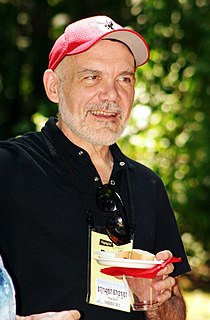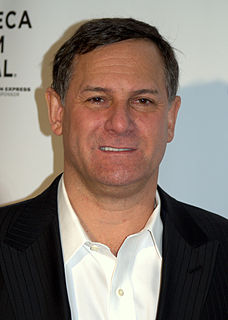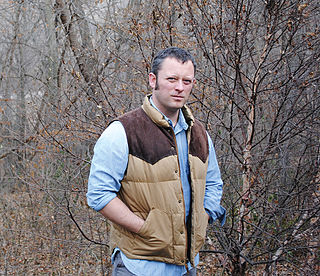A Quote by Isaac Asimov
It took me thirty-six years; and, in some fifty stories, ranging in length from short-shorts to novels, I think I must have touched, in one way or another, on every aspect of computers and computerization. And (mark this!) I did it without ever knowing anything at all about computers in any real sense. To this day, I don't. I am totally inept with machinery... on my typewriter I turn out books at the contemptible rate of one a month
Related Quotes
There is a popular cliché ... which says that you cannot get out of computers any more than you have put in..., that computers can only do exactly what you tell them to, and that therefore computers are never creative. This cliché is true only in a crashingly trivial sense, the same sense in which Shakespeare never wrote anything except what his first schoolteacher taught him to write-words.
The breakup of Bell laid the foundation for every important communications revolution since the 1980s onward. There was no way of knowing that thirty years on we would have an Internet, handheld computers, and social networking, but it is hard to imagine their coming when they did, had the company that bured the answering machine remained intact.
Everything is being run by computers. Everything is reliant on these computers working. We have become very reliant on Internet, on basic things like electricity, obviously, on computers working. And this really is something which creates completely new problems for us. We must have some way of continuing to work even if computers fail.
Science fiction does not attempt to predict. It extrapolates. It just says, "What if?" not what will be? Because you can never predict what will happen, particularly in politics and economics. You can to some extent predict in the technological sphere - flying, space travel, but even there we missed badly on some things, like computers. No one imagined the incredible impact of computers, even though robot brains of various kinds but the idea that one day every house would have a computer in every room and that one day we'd have computers built into our clothing, nobody ever thought of that.
Without computers, the government would be unable to function at the level of effectiveness and efficiency that we have come to expect. . . . Today's government uses computers which are capable of cranking out millions of documents per day without any regard whatsoever for their content, thereby freeing government employees for more important responsibilities, such as not answering their phones.
I think my leap into TV and movies and comics is in a way natural because I'm a visual storyteller. If you look at any one of my short stories or novels, they sort of unscroll cinematically. Every scene is concrete in my mind. I can walk around the room and pick things up. I can describe at length every feature on the character, though I might only supply a glimpse of this on the page. So if I'm writing color into that I'm also writing texture, I'm pushing the image more than anything else.



































